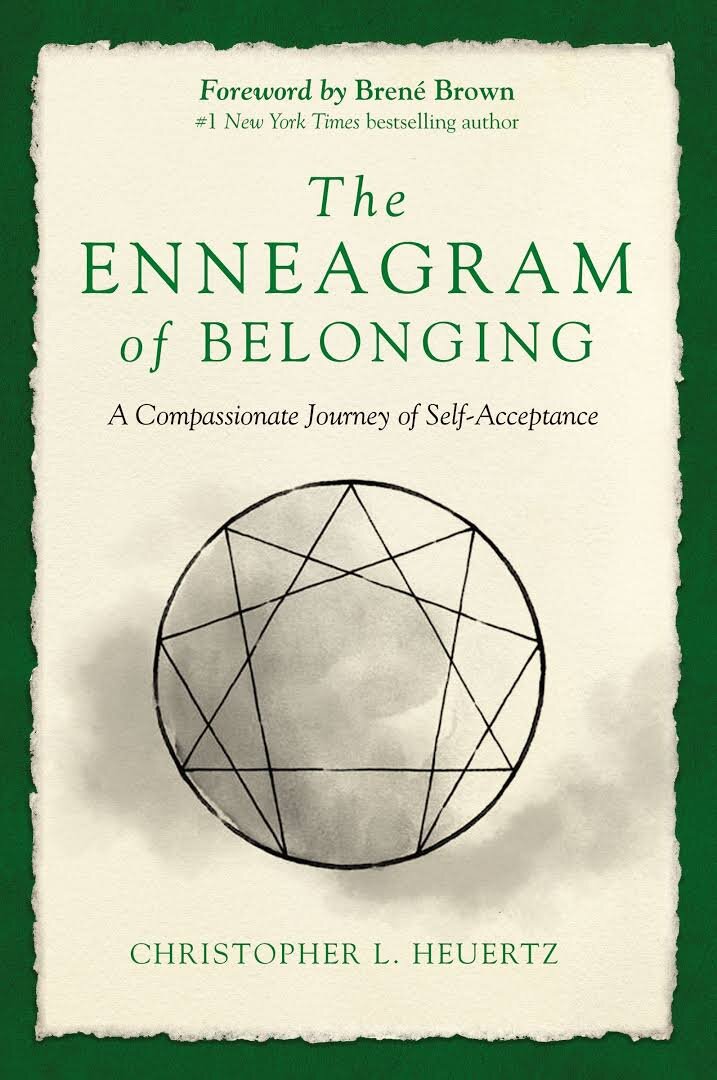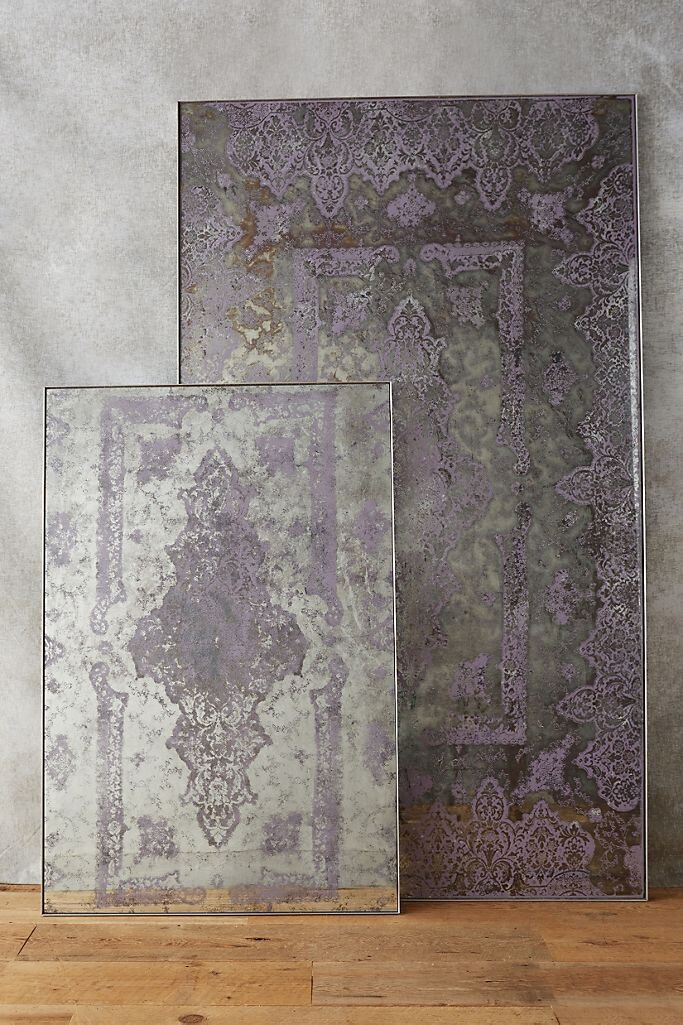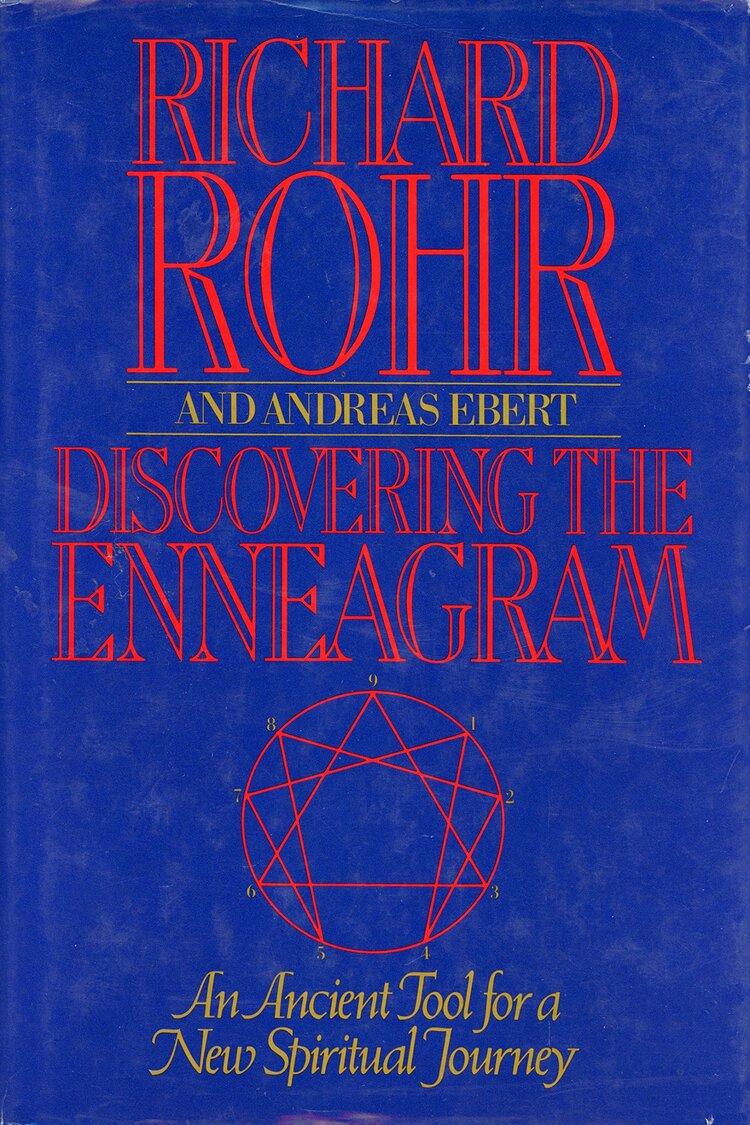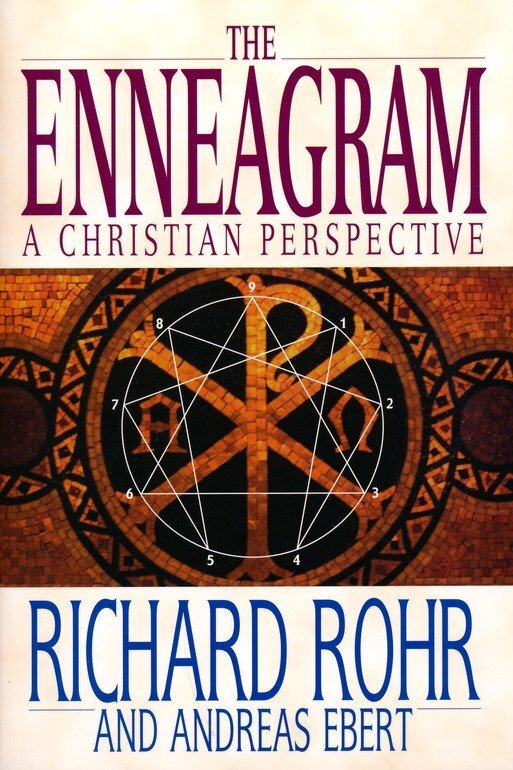I’ve been wanting to write this for a while.
I held back because whenever I thought of it, the magnitude of research that I could put into this made me wait, telling myself “I really need to make this an in-depth, comprehensive resource.” I envisioned stacks of books and notes spilling everywhere. Blurry eyes at 2 AM trying to proofread just one more sentence.
My days do not always have the space for this kind of thing anymore. Truth is, all I can do is sit here human to human, soul to soul, and share what I’ve come to learn about the enneagram. It makes me concerned enough to say something for those who care to listen. So instead of an academic paper filled with footnotes and science, what you get instead is a humble heart to heart. Maybe it’s better this way.
I discovered the enneagram personality tool six years ago through a Christian blogger I was reading at the time. Always a fan of personality tests and fun quizzes, I took the enneagram test and you would have either laughed or cried at my utter amazement and riveted devotion: this thing was amazing. I felt seen and understood like never before. Finally…FINALLY…there was language to wrap myself in and be understood by. Everything made sense. It was validation of the most painful, achy parts of me. It was everything.
I shared it with my closest friends. “Have you heard about this? What’s your number? You’ve got to try this!”
I downloaded an enneagram app. I subscribed to a daily “Enneagram thought for the day” email.
I loaded my bookshelves with enneagram hauls from the used book store.
I recommended it in my coaching practice and discussed results with my clients, pointing out useful ways the enneagram could support and guide them.
I included it in assignments in my creative courses.
I made money off the enneagram. At least indirectly.
In the six years since I first discovered it, the enneagram has exploded into mainstream, now a six-figure-making career for some who write books, offer enneagram-based coaching and business branding services, and travel to speak at gatherings, retreats, churches and events. There are giant Instagram accounts that solely exist for the enneagram-following community. Folks can plug their little ennea-numbers into their social media profiles, and everyone knows exactly what they mean, and get a good idea about what that person is like.
In other words, it’s kinda a big deal.

::
I never wanted to be “that person.” The one who comes alongside something you’re excited about and begins pointing out everything wrong with it. The one who shreds apart something that has literally changed your life. The one who criticizes something you love, something you share with the ones you love. The one who condemns something sacred to you.
So I get that this might feel this way, and I wince along with you. I wish we could be talking about the enneagram together, over coffee, and you could see my face and hear gentleness in my voice.
I’m not trying to take it away from you. I just want to softly tell you why I cannot in good conscience support the use of the enneagram. Please note that while this means I don’t endorse it at all anywhere, I’m talking mostly to those within Christianity. Because the saints are my people. And those of you who identify as believers need to understand the truth about the enneagram and what you are getting involved in when you follow it.
At the very least, it will help you be informed. It’s good to be informed about something you love, right? About something that is so revolutionary in your life? And then you can pray about it. You can decide for yourself how to move forward.
::
The enneagram would have no appeal if it were powerless. Yes, it “works.” It’s effective in the sense that it affirms your strengths and “shadows” (what Christians would call our “sin nature”), validates your lifelong struggles and pain, and helps you understand yourself more deeply so you can make aligned choices for your life. Some believe the enneagram has no validity. From an objective, peer-reviewed perspective, that’s probably true. But for those who fell in love with the enneagram, like me, we aren’t objective scientists interested in academic research and blind study tests or whatever else they do in white lab coats in some prestigious university. Credentials are not impressive to us. We might even hold different beliefs on what “validity” means, and it might pass our definition with flying colors. And through experience, which is too often the holy grail we measure things by, the enneagram does.
We are artists. We want to make a difference for people. We want to create legacies and change lives for the better. We want to be healers and boss babes and warm and real and magical, to find meaning, to be spiritual. We want our pain to have purpose. We want experiences, not things.
Many thanks to Richard Rohr
This is why the rise of the enneagram has found roots in this generation and is being written and talked about everywhere. Through its nine distinct types and eighteen wings, the enneagram, called a “tool,” crept into our culture bringing a framework of self-understanding. First it stayed on the edges, with a few mystics here and there mentioning it in books or talks. Then Richard Rohr, who somehow became an authority bridging other faith traditions with traditional Christianity, either reached out from his seat at the Christian table to help himself to other feasts, or pulled up a chair from the outside and opened his bag of wares.
Among other things, it contained an obscure little tool called the enneagram.
I sure loved Richard Rohr.
He influenced me the most during my time as a mystic. I read his book, “The Naked Now—Learning to See as the Mystics See” at least twice, underlining and highlighting lavishly. He put words to things I’d thought about but could not articulate; helped me to define (and therefore write about) hard-to-describe concepts in ways that made perfect sense. As literally as could be, I became a Richard Rohr disciple. I devoured his books, read his daily emails, and planned to attend his “Living School,” which is like an underground seminary for the “spiritual, not religious.” But even for the religious, too, because he somehow just made it all fit together in a fresh new way. He made religion seem cool. By dropping his name, you proved you weren’t like “THOSE” religious people (fundamentalists, strict evangelicals, Hare Krishnas), and folks were cool with you.
I found a home as a mystic. I wanted to inhale all things contemplative and mystical—the desert fathers and mothers, ancient philosophers, those people writers quote to impress you. As a writer myself, I wanted to be the female version of Richard Rohr. I wanted to be a purveyor of mystical truths that could only be understood by those who pursued deep, spiritual things. Not those normal, everyday spiritual things. Don’t you know I’m a mermaid, Rango? (My friends and I loved this quote by Anais Nin because it described us well: “I have no fear of depth and a great fear of shallow living.”) I wanted no part of what looked like shallow spirituality. Down in the depths, we told ourselves we would learn to see in the dark. But did we? I have immense grief over what I lost sight of, like the humble beauty of simple faith, like an old weathered farmer holding a faded hymnbook on a rustic wooden pew in a little country church sort of faith. Or a mother’s late night, worn knees, wept prayers faith. Not that faith has to look a certain way to be true, but mine (what there was of it) was pretentious and I didn’t know it. Instead, I was inhaling all things Richard Rohr and the curiosities he introduced to me.
::
With Rohr’s endorsements, the enneagram began to enjoy acceptance within mainstream Christianity. We see the fruits now; after a few years of esoteric meanderings, the enneagram is no longer kept only on self-help bookshelves. It’s no longer limited to Instagram influencers or branding identity packages designed for eager entrepreneurs.
It’s now available in ministry and discipleship programs at your local church.
It’s now available at your local Christian bookstore.
Maybe it’s being taught from your pulpit.
So, you might be asking, why is this a bad thing?
What’s so bad about the enneagram?
If you ask most, you’ll hear that the enneagram personality tool is ancient. Its origins are cloaked in mystery. This is deliberate, we know now, because human psychology tends to be curious about mysterious things, and ancient things tend to hold more spiritual weight among the more numinous of us. These two simple details have been used [manipulated, exploited] to propel the enneagram personality tool forward within the last generation.
The truth is, the enneagram personality tool is not ancient, and thanks to a confession of sorts, its origins are no longer a mystery.
Here is a VERY over-simplified history lesson:
1. It is commonly believed that the enneagram is drawn from traditions that go back thousands of years. Even if so, this does not mean that the enneagram itself is ancient. That would be like saying iPhones are ancient because they contain iron, and iron goes back to the beginning of time. However, the common narrative of “ancient traditions” is highly doubtful based on the testimony of Claudio Naranjo, the psychiatrist who developed the nine types of the enneagram personality tool. (More on this soon.)
What is known to be of old is the nine-pointed enneagram symbol, which can be traced back to antiquity. An Armenian mystic named G.I. Gurdjieff first introduced it to the West around the turn of the century. In his book “Facets of Unity: The Enneagram of Holy Ideas,” A.H. Almaas writes, “Gurdjieff appears to have learned it from a secret school in the Middle East, a school steeped in a spiritual tradition that is at least two thousand years old. He did not, as far as we know, teach the Enneagram of personality fixation, which is currently the most widely known Enneagram. This Enneagram, which has become popular in recent years, came mostly from Claudio Naranjo, a Chilean psychiatrist and teacher, who learned it from Oscar Ichazo, a South American spiritual teacher.”
2. South American spiritual teacher Oscar Ichazo, b. 1932, d. 2019, is the one who originated the phrase “Enneagram of Personality,” likely sometime in the ‘60s. He gave his secret teachings to Claudio Naranjo in the 1970s when Naranjo went “to experience firsthand the methods for attaining self-realization that [Ichazo] had developed.” “
While it is true that Ichazo drew on his knowledge of a number of such traditions, the actual combination of those traditions connected with the Enneagram symbol is purely his creation. Thus, the “Traditional Enneagram” only goes back to the 1960's when Ichazo was first teaching it, although the philosophy behind the Enneagram contains components from mystical Judaism, Christianity, Islam, Taoism, Buddhism, and ancient Greek philosophy (particularly Socrates, Plato, and the Neo-Platonists)—all traditions that stretch back into antiquity.” (Source)
3. What Naranjo learned from Ichazo later developed into the enneagram as we know it. When you are scrolling through Instagram and click on your favorite artist’s profile, that little “4w5” is her enneagram type and wing. The information and development of these types comes from Claudio Naranjo, a Chilean psychiatrist and teacher. Naranjo is responsible for the modern enneagram personality tool that has become so widely used today: a complex system of nine unique types that can be analyzed and applied to the person who takes the enneagram personality test.
4. In 1990 or ‘92 (dates vary), Richard Rohr, a still relatively unknown Franciscan priest, published a book that continues to rank in three Amazon categories: New Age Mysticism, Medical General Psychology, and Self-Help in New Age Religion. The book is called “Discovering the Enneagram: An Ancient Tool for a New Spiritual Journey.” Twenty-five years later, in 2015, Rohr first appeared on The Oprah Winfrey show. Somewhere in that timeframe, he began to be highly influential among wandering evangelicals like myself. In part, no doubt, to his ardent praise of the enneagram. And then Rohr and his followers like me began to press the message of the enneagram further into the Christian world through wholehearted recommendations, excited testimonies, and evangelical zeal.
So how did Claudio Naranjo develop the nine types of the enneagram personality assessment tool?
Automatic writing is pretty much exactly what it sounds like: writing that is channeled through a person who is not in control of the information being written.
In this interview, we learn from Naranjo that in later years, Oscar Ichazo left off the “ancient traditions” story and began to teach that he got the information about the enneagram from revelation, from a higher power. Naranjo then admits that he adopted the same approach because people “trust that more.” When people heard him talk of the enneagram, they thought he was sharing something from Babylonian origins, but in fact he was not. He cultivated a mystique around it, which you can hear him discuss unapologetically
in his own words.
He quotes Oscar Wilde in justification: “If you want an idea of yours to become famous, attribute it to a famous person.”
Breaking the spell of the enneagram
There is a painful, merciful series of events in my life that happened not because I, with discernment and wisdom, initiated them, but because they ended up happening to me. Having my eyes opened to the enneagram is one of them.
Coming across the recorded testimony of Claudio Naranjo speaking so candidly and cheerfully about his intentional “disinformation,” as he called it, about the enneagram, and describing how he got most of his information through automatic writing broke my sweet enneagram spell. The modern, buzz-worthy, life-changing, money-makin’ enneagram personality tool is fabricated on a lie uttered from the lips of the man renowned for it.
One thing you can ALWAYS be sure of: a lie never, ever, not once, not even a little bit, comes from God. There is nothing that could be sourced from God that would have origins in falsehood. It is categorically opposed to His nature of truth.
What’s tricky for folks is when something seems to have made a legitimate difference in their businesses and lives. I get that. That’s why it’s subtle; the best lies are. And that’s why we are called to live in truth. To not be deceived.
Like I was.
4 quick reasons for Christians to run from the enneagram
1. If the enneagram were good, it would come from God. God is the source of all good gifts. If it came from God, it would be rooted in Truth. But the enneagram is built on deception. Truth cannot mix with deception; they are antithetical to one another.
2. Claudio Naranjo received the information for the nine types through automatic writing, which he then “verified through observation.” Automatic writing is channeled writing. We already know the enneagram does not come from God; who, then, is it channeled from? What authority do they have? Why would we listen to any spiritual being who is not from God? One is either with God or against God. Since the channeled information does not come from God, it is demonic in origin. It’s as black and white as that in the spirit world.
3. The enneagram features philosophies, “wisdom” teachings, belief systems and spirituality not based on Scripture. When used as a sacred guide for living, this replaces the guidance and authority of the Holy Spirit to lead our lives. Anything that takes the place of God is idolatry.
4. The enneagram redefines sin to become our “shadow side,” or ego, rather than showing what it is: a brutal assault against the holiness of God. This minimizes the serious nature of sin and our desperate need for Jesus. This becomes dangerous because why then do we need redemption?
Echoes of the garden
The most ancient thing about the enneagram is the temptation that comes with it: the desire for knowledge.
I recognize it in me. I want to understand so much. I want to understand myself. I want to know things. Mysteries and prophecies. How to do things. How to get better at stuff. How to run a successful business, how to be a good mother, how to DIY a distressed Anthropologie look-alike mirror. Let me understand on a spiritual level which is so much better than the regular old level.
 |
| I’ve pinned it, but it’s not DIYing itself. |
In praise of wisdom
Here’s the thing: in and of itself, knowledge is a blessing. We save lives through knowledge, we grow, make a difference, we create through knowledge. But knowledge does not equal truth. A philosophical soup made from all the flavors of the world can impart knowledge that may or may not be true, but it will not supply wisdom. For saints, wisdom comes from God. The Spirit of Truth. We find it in Scripture, and we measure everything outside of Scripture against the truth contained within its pages. If it holds up, well. If it does not, it gets rejected, no matter how desirous it is to make one wise.
The enneagram has a firm foothold in Christian bookstores and churches now. This tide ain’t gonna turn until the heavens roll back like a scroll. Enneagram books dominate bestseller lists, and more folks are getting famous on their own, without taking Oscar Wilde's advice. Enneagram-based ministries are thriving; just look at Insta and local coffee shops with bright-eyed 20-and-30-somethings sitting at tables covered with laptops and books and Bibles and journals. The enneagram is not going away and it’s found a lavish and welcoming new home nestled within the arms of Christianity.
I want to close with something tender and important.
A sweet and inspiring artist I follow just posted a photo of a new enneagram book. This artist is a Christian with over a million Insta fans. There, on the back cover, just below Richard Rohr’s, was her glowing endorsement of the book.
At first I felt a little ache. And then I thought of all the other women in ministry who have excitedly proclaimed the enneagram, and how so many Christian coaches are now thriving in businesses oriented around the enneagram. And I thought about myself, how excited I was six years ago. How blessed I felt. How I thanked God for the enneagram and how He used it for healing in my life. I was wrong, but I truly believed He used it to help me, and that’s how I shared it with others. I viewed it as a healing tool to learn about how God made us and what He created us for. How we could become the best versions of who we were meant to be in service to God.
The enneagram is like that. It does this sort of thing, especially for sensitive souls and truth-seekers. The impact is undeniable. You see all the positive changes and outcomes and can’t even imagine there being something deadly and dark in it. And over time, with more layers obscuring the source of the enneagram, a “new history” is being written and believed. It’s becoming Christianized, “taken back” from the world, but there is nothing in it for the saint to begin with. It’s being re-written, re-marketed, and applied in Bible-based contexts by people you know, like, love, and trust.
I was one of them and I’m deeply sorry. I’m sorry to every person I ever shared the enneagram with, to every person who ever read my creative courses recommending it, or to every client I used the enneagram with in a coaching session. I do not believe it is compatible with a sincere and humble Christian faith. But this does not mean I think that the artist I follow, or women in ministry who use the enneagram, or creative entrepreneurs who put their little “5w6” on their Instagram profiles, are backslidden or unsaved because of it. They just don’t know, and if they’ve heard anything troubling about the enneagram they probably write it off as haters gonna hate. It takes time, humility, and willingness to see. It takes listening to the Spirit—really listening, even when you don’t want to. Sometimes it takes our eyes being opened by someone bigger than us, who knows way more than we do.
From personal experience with my own self, I would not trust the spiritual discernment of those wrapped up deeply in the enneagram. I believe this is an area of serious deception. But if you or your favorite person is an enneagram queen, I don’t think less of you and I do not condemn you. If you’re in the house of the saints, I gently and urgently encourage you to sincerely seek the wisdom of the Lord. Pray earnestly about this. Move forward as He guides you. That’s all I can ask.
Additional reading:









No comments: